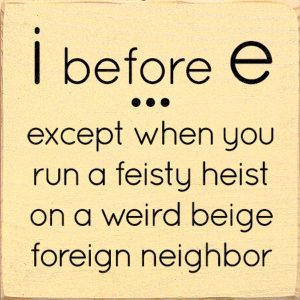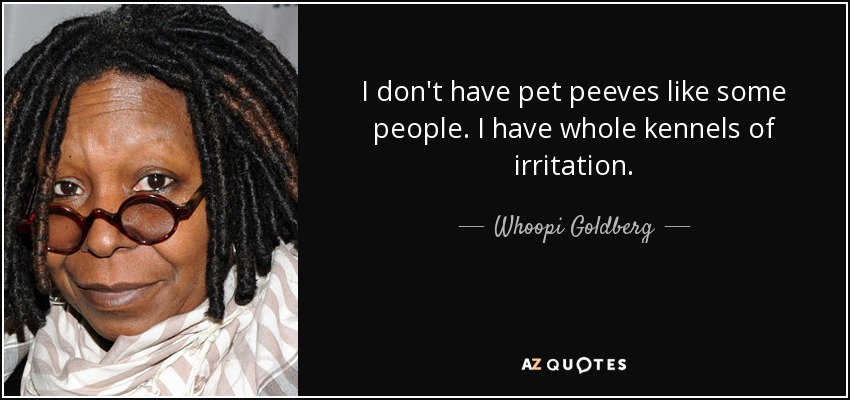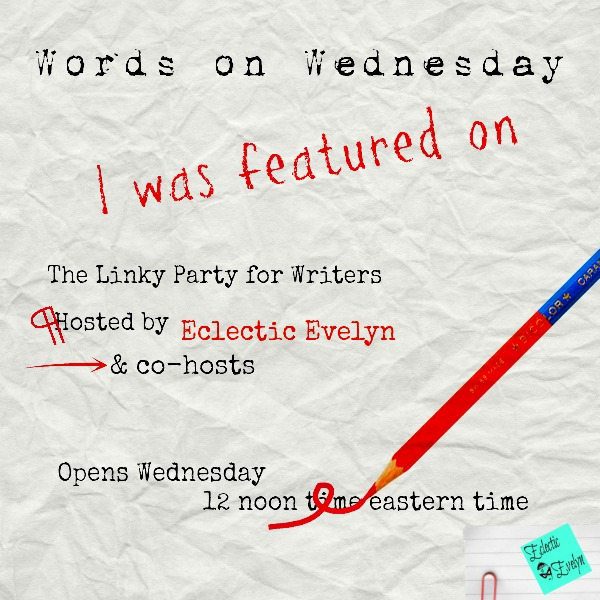Does writing really have rules?
Nope.
Alright, hope you have a good week, I’ll be back…
Oh, you want more of an answer? You don’t believe me when I say that there are no rules in writing?
Ok, let me back up. Yes, you can find rules for English grammar and spelling in books such as the Chicago Manual of Style or the Modern Language Association Handbook. Like any other language, English has rules. I feel like in English, we almost have more exceptions than we have rules, but there are still rules.
When I say writing doesn’t have rules, I mean the art of writing. You cannot find one ultimate list of dos and don’ts that will lead to you writing the perfect book. If that existed, we’d only have perfect books out there! And instead, we have millions of beautifully imperfect books that all speak to different people in different ways.
Hold on now, you say. Haven’t you been giving me lists of rules for writing, Ms. Editor? Well, yes and no. I provide suggestions and tips that will improve your writing. But I never want you to read my post on, say, white room dialogue and think “That’s it, I’ll never write white room dialogue again.” Or open your novel manuscript and delete every single said bookism.
Pet Peeves
I get concerned when I see writers or editors turning their pet peeves into hard and fast writing rules. People will start vendettas against certain words or phrases or punctuation marks. Don’t get me wrong, I have plenty of pet peeves. Most of them have found or will find their way to my blog. Others’ pet peeves can help you notice words or phrases you are overusing in your own writing. You can use pet peeves to make your writing better.

For instance, a publisher once told me the word “that” is one of her pet peeves. She said people overuse it all the time and many “thats” are extraneous and can simply be cut. Ever since she told me this, I have been much more aware of “that” in the pieces I edit (I should pay more attention to it when I’m writing as well). But that does not mean I can go into a manuscript, ctrl+F the word “that,” and mass delete them. That would simply result in confusing and incomplete sentences (see what I did there?).
Writing has no rule saying you can never use “that.” But you can go into your manuscript and find instances where you’ve included it unnecessarily or you can rewrite your sentence to be stronger. I cut at least three out of the previous paragraph as I was working through it. And I think it made the paragraph stronger. But I didn’t cut out all of them!
Strengthen Your Writing
 If you’re serious about becoming a writer, do your research. Find out the cliches and tropes, the repeated and unnecessary words, the pet peeves of other writers and authors. And then become aware of these things in your own writing. Reword sentences and rewrite scenes to make them stronger. Ultimately, your goal should always be to improve your craft and strengthen your writing.
If you’re serious about becoming a writer, do your research. Find out the cliches and tropes, the repeated and unnecessary words, the pet peeves of other writers and authors. And then become aware of these things in your own writing. Reword sentences and rewrite scenes to make them stronger. Ultimately, your goal should always be to improve your craft and strengthen your writing.
But please don’t take someone’s pet peeve or piece of writing advice and take it as inviolable gospel. Sometimes you need to use “that” or “to be” or an adverb. A prologue may be just the thing you need. Nothing is set in stone. There are no quick and easy fixes to magically perfect your manuscript.
The key to using any piece of writing advice or “rule” is to understand why it is a rule. Before you decide to break it, know what costs you will be paying and what benefits you hope to gain. The most important thing is to be aware.
Break the Rules
So go out there and break some rules. Be like Robert Apsrin and sprinkle 20 said bookisms on every page. Be like Orson Scott Card and start every chapter with white room dialogue. Be yourself, and break some other writing rule someone told you about because you know it will strengthen your story and produce the desired effect. (Or be me and start three sentences in a row with the same word because you’re willing to pay the repetition cost for the poetic benefit!)
Be like Orson Scott Card and start every chapter with white room dialogue. Be yourself, and break some other writing rule someone told you about because you know it will strengthen your story and produce the desired effect. (Or be me and start three sentences in a row with the same word because you’re willing to pay the repetition cost for the poetic benefit!)
And then be willing to humble yourself and reign it in if a number of readers or editors tell you your rule breaking isn’t working.
Experiment, try new things, and get feedback from a variety of people who don’t love you. Those are my rules for writing.



Yup, there’s an exception for nearly every rule. Parsley can even make a decent a salad. https://www.foodandwine.com/recipes/parsley-salad 🙂
Excellent examples of people who broke the rules to the greatest possible effect.
😀 I love this. I need to go add this to my post in which I said not to make a salad out of parsley. Clearly I don’t know enough about cooking to be trusted making food-based analogies!
I find that if you spend much time worrying about if you are writing “right” than you don’t get much writing done. For me, writing needs to flow and sound like the voice of the writer or character then everything else will fall into place during editing. Thanks for sharing this at #WoW Words on Wednesday Linkup.
Yes, exactly. The most important part of writing is writing. You can always fix things later.
Thanks again for the invite. I will definitely have to keep an eye on that!
Love this! Pinned the “i before e” image!
Thanks! It definitely is a great image 😀